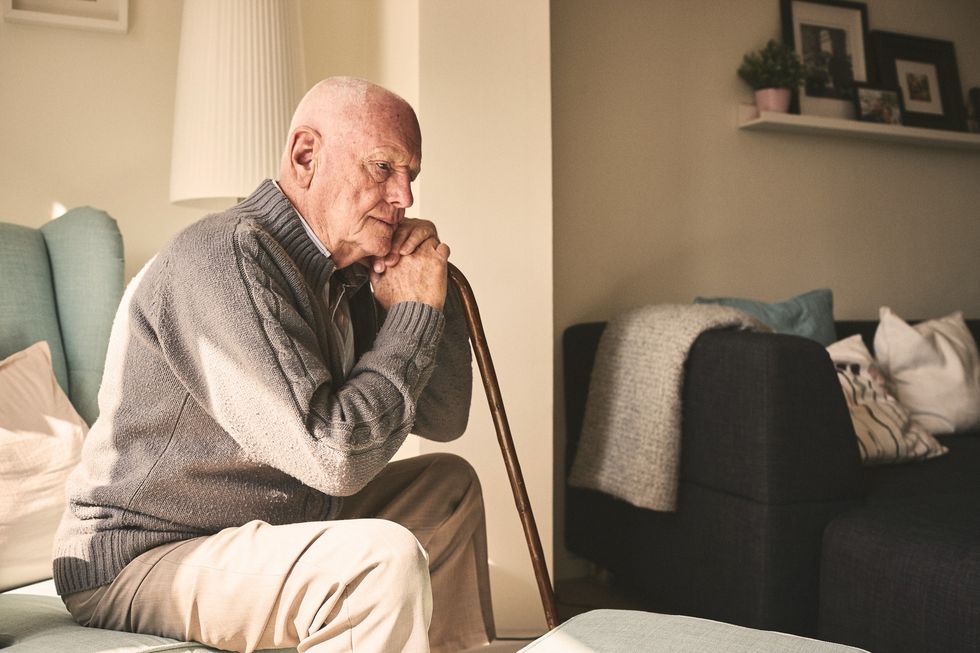Retirees need £36,915 per year for a comfortable retirement in 2025, leaving a substantial £25,413 gap compared to the state pension, new research has revealed.
Findings from Shepherds Friendly highlight the significant shortfall facing pensioners who rely solely on state support.
Despite the clear disparity between retirement needs and state provision, a “surprising” number of people have not considered how much they need annually for retirement, according to the research.
Shepherds Friendly warns that while the state pension provides a financial safety net, it falls far short of what most people need for an enjoyable retirement. Housing costs represent the largest expense for retirees, with mortgage repayments and additional housing costs averaging £7,600 per year.
Fuel and power bills follow as the second-highest expenditure at £3,600 annually. Transport costs account for £3,392 per year, while food and drink expenses amount to £3,530.
Beyond essential spending, retirees typically allocate £3,238 annually for recreation and cultural activities. Dining out and hotel stays make up a smaller portion of retirement spending, with an average of £1,667 per year dedicated to restaurants and accommodation.
Do you have a money story you’d like to share? Get in touch by emailing [email protected].

Britons could face a pension savings shortfall, experts warn
GETTY
A comfortable retirement in 2025 would require an annual income of nearly £50,000, according to the research. Those seeking a moderate retirement lifestyle would need approximately £31,848 each year.
Derence Lee, chief financial officer at Shepherds Friendly, noted that many people find it “easy” to postpone thinking about their later years.
He added that the rising cost of living makes saving for the future particularly challenging for some individuals. The research indicates that relying solely on the state pension to cover retirement costs would be “extremely challenging,” with savers urged to begin saving earlier to boost their investments.
The full UK state pension currently stands at £11,502 per year, equivalent to approximately £221 weekly. This basic level of support falls significantly below the amount needed for retirement, according to Shepherds Friendly.

Pensioners are worried about their retirement
GETTY
The financial services provider emphasises that while the state pension serves as a safety net, it is insufficient for most people’s retirement aspirations. Furthermore, the research highlights a concerning trend where many individuals, despite recognising the pension gap, have not taken adequate steps to address it.
This remains true even for those already contributing to private or workplace pensions. The findings suggest that proactive financial planning beyond state pension provisions is essential for securing a comfortable retirement.
Notably, the average retiree faces £38,000 in remaining mortgage debt by age 65, the research shows. For those on a five-year mortgage term, this translates to annual payments of around £7,600 when retiring at 65.
These mortgage commitments represent a significant portion of retirement expenses, potentially straining already limited pension resources. The findings emphasise the importance of factoring housing costs into retirement planning, as mortgage payments often continue well into retirement years.
This mortgage burden adds another layer of financial pressure beyond everyday living expenses for retirees. Borrowers have been saddled with hiked interest rates following recent actions from the Bank of England.
The data suggests that prospective retirees should carefully consider their housing situation when planning for retirement, as mortgage costs could consume a substantial portion of their annual income.
LATEST DEVELOPMENTS:

Those approaching retirement, or who have retired, have struggled with mortgage payments
GETTY
Chris Rudden, the head of Investment Consultants at Moneyfarm, emphasises the importance of early pension planning.
He said: “For a lot of people, your pension may be the last thing on your mind. However, it is best to stay on top of this so you can reap the rewards later in life.”
Rudden stresses that starting pension contributions early is crucial, noting that “making small contributions now is a lot easier than playing catch up”.
He points to the issue of lost pensions, with research showing the average Briton believes they have around £13,000 spread across three forgotten pension plans.
“Why not use the new year to track some of these down,” Rudden suggests, highlighting how workplace changes can lead to misplaced pension investments.